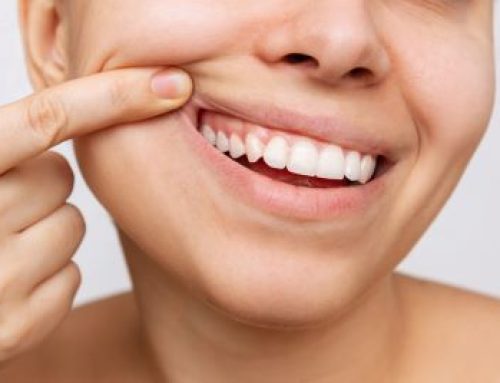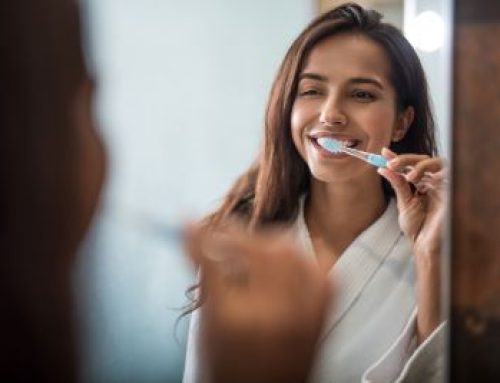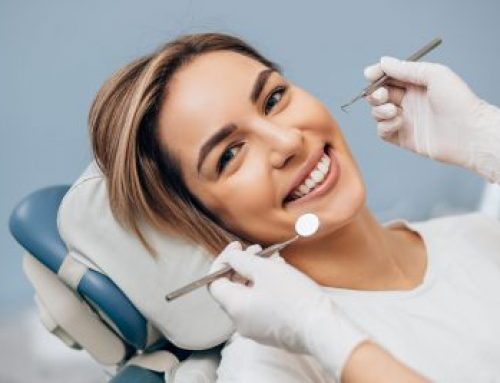Choosing The Right Toothpaste
 With potentially endless types of toothpaste to choose from, the prospect of finding the best product that suits your dental needs can sometimes prove an overwhelming task. Stroll down the aisle at your local grocery store and you will spot walls of a range of toothpaste, all claiming to guarantee something the others don’t! But what toothpaste should you use? In this guide, we provide relevant answers to all your toothpaste-related queries!
With potentially endless types of toothpaste to choose from, the prospect of finding the best product that suits your dental needs can sometimes prove an overwhelming task. Stroll down the aisle at your local grocery store and you will spot walls of a range of toothpaste, all claiming to guarantee something the others don’t! But what toothpaste should you use? In this guide, we provide relevant answers to all your toothpaste-related queries!
And while it’s okay to ask for your dentist’s recommendations on the best toothpaste, you can enhance your knowledge by learning about the different ingredients as well as properties of today’s toothpaste products. This will allow you to make the most informed decision the next time you go shopping for dental products.
So, how do teeth brushing work?
Before we delve deeper into the available types of toothpaste, let us first understand the science behind teeth brushing.
When you apply toothpaste that features an abrasive on your toothbrush, then brush your teeth, it will help scrub and remove both bacteria and plaque on your teeth. As you may have guessed, the act of brushing provides the abrasion needed to effectively eliminate the foreign substances from your mouth. However, for this to happen, your toothpaste should feature micro-abrasives, which help remove nearly everything. It’s also worth noting that toothpaste also features cleaning agents that sanitize your mouth, loosening up fairly tougher substances that fail to respond to liquid measures.
So, what are the potential benefits of fluoride toothpaste?
Fluoride is arguably the most crucial ingredient in toothpaste. When you any type of food, a few traces of both sugar and starch will always remain stuck between your teeth. And it’s this sugar that the bacteria in your mouth feeds on, ultimately resulting in plaque buildup and tooth decay.
Fortunately, fluoride can tackle this problem in two ways. First, fluoride provides your tooth enamel with sufficient strength. And when your teeth are stronger, they are less likely to decay even if you are plagued by plaque buildup. What’s more, fluoride has been shown to alter the effects of tooth decay provided it has not progressed beyond a specific point. And this is why you should always use fluoride, especially if you can!
If you are an individual suffering from tooth decay or are highly susceptible to tooth decay, you should use toothpaste that features relatively higher amounts of fluoride. The best way to establish whether you need a higher fluoride content is if you are a coffee aficionado or an ardent smoker. And if tooth decay is your main concern, you can ask your dentist to recommend a high fluoride toothpaste on your next dental appointment.
So, when should you use fluoride-less toothpaste?
It is important to note that only a few scenarios should warrant your use of fluoride-free toothpaste, including:
- Children aged 6 years or below: Kids of this age are likely to swallow toothpaste while brushing their teeth, which can be a huge risk if the toothpaste is flavored.
- Those with a condition that makes them swallow toothpaste. Bearing in mind that extended swallowing of fluoride can lead to the weakening of your bones and ligaments. However, if you don’t have any issue with regularly swallowing your toothpaste, you are highly advised to use fluoride. If you didn’t know, your risk of developing bacteria buildup as well as cavities is relatively higher without fluoride in your toothpaste!
Sensitive toothpaste:
If you have ever experienced, or are currently experiencing wear and receding gums on your teeth, you should ask your dentist for an explanation regarding the potential causes. Your dentist may well recommend a toothpaste for sensitive skin. Some toothpaste features unique sensitivity ingredients. Long-acting toothpaste contains potassium nitrate and should be brushed onto your dentine to help with gum repair.
Also, some toothpaste features an ingredient known as NovaMin, which helps repair tubules and equally offers protection to your dentine, so that you feel fast relief. It’s a dual-action toothpaste that guarantees both repair and relief, a totally new phenomenon in the world of sensitive toothpaste.
Whitening toothpaste:
Most people would naturally prefer toothpaste that can potentially whiten their teeth. And while the most promising tooth whitening services are only available in your local dentist’s office, some toothpaste can provide significant whitening results.
What helps whiten your teeth in toothpaste is the micro-abrasive found in the ingredients. They scrape away the outermost layer of stains on your teeth. What’s more, some varieties of toothpaste feature a small amount of hydrogen peroxide which can potentially bleach a deeper layer of your tooth white. You should go for toothpaste that contains the highest amounts of silicates because these are the abrasives that help eliminate stains. However, to access and subsequently remove older and tougher stains, you will need to seek the help of a qualified dentist.
Natural toothpaste:
If you are a fan of all-natural products or are sensitive to some toothpaste ingredients, natural toothpaste should be your ultimate option. Some individuals are allergic to the flavors or foaming agents available in toothpaste. Thankfully, natural ingredients will help relieve your allergy symptoms. If you usually experience mouth sores, you could be having an allergy. Consult your dentist on toothpaste allergies and sensitivities and eliminate other possible problems.
Fortunately, herbal and natural toothpaste is highly effective just like the other brands of toothpaste. After identifying a particular ingredient that might be triggering your allergy, you can select toothpaste that is free from the same ingredient. Of course, you still have to ensure your toothpaste contains the right amount of fluoride. Thankfully, most natural toothpaste features this important ingredient.
A highly versatile toothpaste:
Sensodyne Pronamel has been proven to be a highly versatile toothpaste that satisfies nearly all the criteria on this list. It not only features high fluoride content essential for those with tooth decay, whitening abrasives for white teeth seekers but also has the sensitivity healing properties of other Sensodyne products and doesn’t feature any allergic ingredients.
The bottom line:
For you to find the most appropriate toothpaste that suits your dental needs, you must first take into account all the dental problems that bother you. You can enhance your children’s safety by choosing a toothpaste that’s free from fluoride, repairing your tooth enamel, staying free from allergens, and healing sensitive teeth by choosing the right type of toothpaste.
If you are looking for a dentist, HPS Advanced Dental Care would love to see you. Dr. Heather is gladly accepting new patients.
We are located at 4741 24 Mile Rd. Shelby Township, MI 48316, and we can be reached at (248) 652-0024. We look forward to meeting you!





